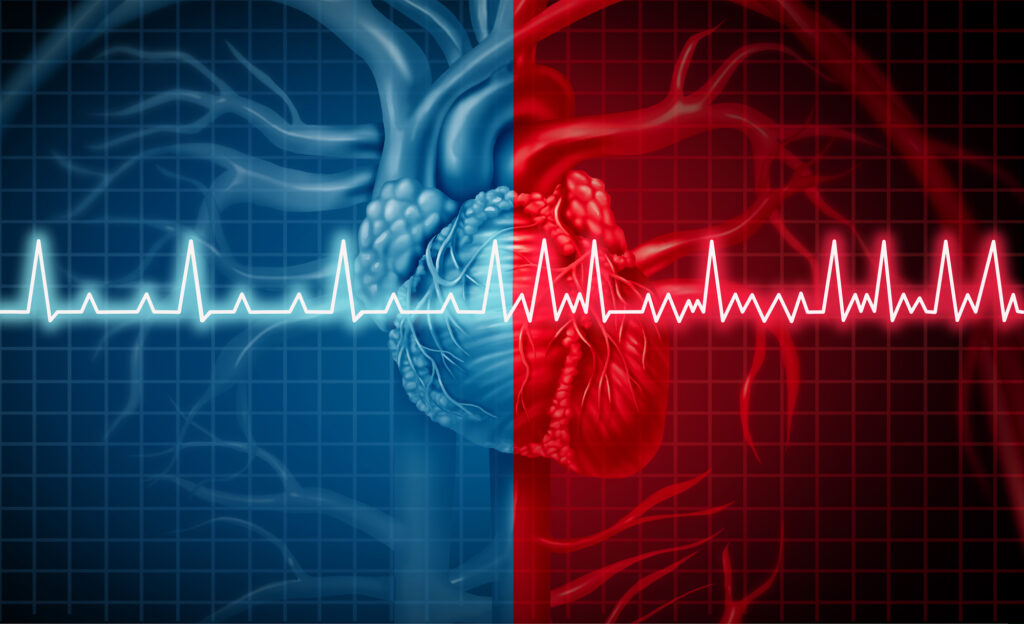Atrial fibrillation—an irregular, often very rapid, heart rhythm—is a serious condition that can lead to blood clots, stroke, heart failure, or other cardiovascular complications. It primarily affects older adults, and more than 12 million people in the U.S. are expected to develop atrial fibrillation by 2030, according to the American Heart Association.
Now, new research published in the Journal of the American Heart Association shows that as many as one in every four postmenopausal women may develop atrial fibrillation, and, more unexpectedly, that previously overlooked factors such as stress and poor sleep may be serious contributors to the condition.
The Study
As part of the Women’s Health Initiative, a major U.S. study begun in 1992, researchers reviewed data from 83,736 questionnaires submitted by women ages 50-79. Participants were asked a series of questions in four key categories: stressful life events, sense of optimism, social support, and insomnia.
Questions about stressful life events addressed topics such as the loss of a loved one; illness; divorce; financial pressure; and domestic, verbal, physical, or sexual abuse. Questions about sleeping habits focused on difficulty falling asleep, excessive waking during the night, and overall sleep quality. Questions about participants’ outlook on life and social support addressed topics such as friendships and stressful situations; a sense of optimism such as believing good things are on the horizon; and having help with daily chores.
During approximately a decade of follow-up, the study found that about 25 percent (23,954) of the participants developed atrial fibrillation. For each additional point on the insomnia scale a woman scored, her likelihood of developing atrial fibrillation increased by 4 percent. Similarly, for each additional point on the stressful life event scale, the likelihood of developing atrial fibrillation increased by two percent.
“The heart and brain connection has been long established in many conditions,” lead study author Susan X. Zhao, MD, a cardiologist at Santa Clara Valley Medical Center in San Jose, CA. “Atrial fibrillation is a disease of the electrical conduction system and is prone to hormonal changes stemming from stress and poor sleep. These common pathways likely underpin the association between stress and insomnia with atrial fibrillation.”
Conclusions
The researchers noted that stressful life events, poor sleep, and feelings such as depression and anxiety are often interrelated, so it’s difficult to know whether these factors accumulate gradually over time to increase the risk of atrial fibrillation as women age. Chronic stress has not been consistently associated with atrial fibrillation, and the researchers note that a limitation of their study is that it relied on patient questionnaires.
Also, stressful life events, though significant and traumatic, may not be long-lasting, Zhao notes. Further research is needed to confirm these associations and evaluate whether customized stress-relieving interventions may modify atrial fibrillation risk.
That said, these findings have likely identified previously overlooked contributing factors (and potential treatment avenues) for atrial fibrillation. “In my general cardiology practice, I see many postmenopausal women with picture-perfect physical health who struggle with poor sleep and negative psychological emotional feelings or experiences, which we now know may put them at risk for developing atrial fibrillation,” said Zhou. “I strongly believe that in addition to age, genetic, and other heart-health related risk factors, psychosocial factors are the missing piece to the puzzle of the genesis of atrial fibrillation.“






